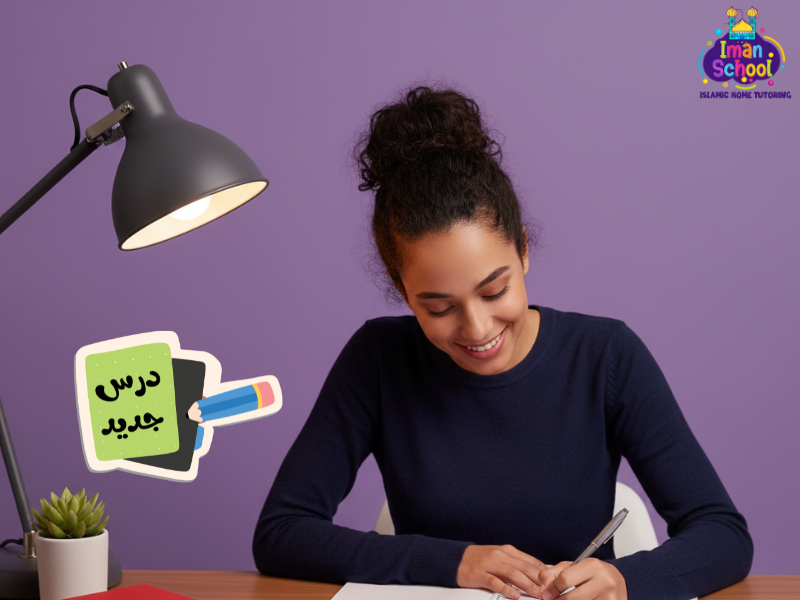Is Arabic Hard to Learn?
When you ask, "Is Arabic hard to learn?", you're not alone. The US Foreign Service Institute (FSI) classifies it as a Category 5 language, one of the most difficult for English speakers to learn. But this classification doesn't tell the whole story. The Arabic vs other languages difficulty is often exaggerated. While the grammar and some sounds may be new, the consistency of the language and the availability of excellent resources make the answer to "Is Arabic hard to learn?" a resounding "no" for a dedicated learner.

Why Arabic Feels Hard?
Different Alphabet: Arabic uses its own script, which looks very different from Latin letters. But it has only 28 letters, and you can learn them in a few weeks with practice.
Sounds: Some Arabic sounds (like ع or ق) don’t exist in English or other European languages, so they take practice.
Grammar: Arabic has root-based words and a grammar system that can be tricky at first, especially verb forms and plurals.
Dialects vs. Standard Arabic: People speak many dialects (Egyptian, Levantine, Gulf, Moroccan…), which differ from Modern Standard Arabic (MSA) used in books, news, and formal speech. This can be confusing for beginners.
Why It’s Easier Than You Think
No capital letters – the script is consistent.
Logical root system – once you know a root, you can guess related words.
Widely available resources – apps, tutors, YouTube, and online courses make learning accessible.
High motivation factor – whether for faith (Qur’an), travel, business, or culture, learners often stay motivated.
The Arabic Alphabet: A Simpler Challenge Than You Think
A major reason people feel is Arabic a hard language is the alphabet. But Is Arabic hard to learn? when the alphabet is so different? Actually, no. The Arabic alphabet for beginners is surprisingly easy to master.
It has 28 letters, and once you learn them, you'll find that their pronunciation is consistent and phonetic, unlike the many irregularities in English. This foundational step is often the most intimidating part, but it's a manageable challenge that shows you that the answer to "Is Arabic hard to learn?" isn't what you might have thought.
Learning Arabic Grammar: A Step-by-Step Approach
The grammar is another aspect that makes people wonder, "Is Arabic hard to learn?" The complex verb conjugations and the root-based system are definitely different from English. But a systematic approach to Arabic grammar for beginners can make it simple.
The root system, for example, is a logical pattern that helps you learn vocabulary faster. So the answer to "Is Arabic hard to learn?" when it comes to grammar is: it's structured and logical, and a good tutor can guide you through it easily.
Which Arabic to Learn? A Guide to Modern Standard vs. Dialects
The question of which Arabic to learn is crucial for any beginner asking, "Is Arabic hard to learn?" The choice between Modern Standard Arabic vs dialect will define your learning path. Modern Standard Arabic (MSA) is the formal, written language used across the Arab world, while dialects are the spoken, regional languages.
The easiest way to learn Arabic is often to start with MSA to get a solid foundation and then move on to a dialect to learn conversational Arabic. This two-step process makes the answer to "Is Arabic hard to learn?" much more manageable.
The Easiest Parts of Learning Arabic
The answer to "Is Arabic hard to learn?" isn't just about the difficult parts. There are many aspects of Arabic that are surprisingly easy and enjoyable for Arabic for non-native speakers:
No capitalization.
Logical word-root system.
Consistently phonetic letters.
Simple sentence structure.
These features prove that how difficult is Arabic is a matter of perspective and that there are many factors working in your favor.
Why You Should Learn Arabic?
When you consider all the challenges, you might still wonder, "Is Arabic worth learning?" The benefits of learning Arabic are immense. The answer to Is Arabic worth learning? is yes, for many reasons:
It gives you the ability to communicate with millions of people.
It allows you to understand the Quran directly.
It opens doors to a rich cultural heritage.
It improves your career prospects.
It makes travel more enriching.
It boosts your cognitive skills.
It helps you understand global politics.
It's a beautiful language to listen to and read.
It provides a new perspective on the world.
It's a satisfying personal challenge.
The answer to Is Arabic hard to learn? is ultimately secondary to the immense rewards you gain from the journey.

Online Arabic Classes: The Best Way to Overcome Difficulties
The best way to tackle the question, "Is Arabic hard to learn?", is with a structured approach. Online Arabic classes for beginners provide the perfect solution for anyone in the US, UK, Canada, or Australia. A private online Arabic tutor gives you the one-on-one attention and personalized feedback you need to master pronunciation and grammar. This is why a good online Islamic school is the best way to learn Arabic for learning Arabic as a second language.
How Long Does It Take to Learn Arabic?
The answer to "how long to become fluent in Arabic" depends on your dedication. While the FSI estimates it takes 2,200 hours, consistent practice with a good curriculum can help you achieve your goals faster. The question isn't just "Is Arabic hard to learn?" but rather, "Am I committed enough to learn it?"
Tips and Tricks for Learning Arabic Fast
If you're asking how to learn Arabic fast, here are some tips for learning Arabic:
Find a qualified tutor who understands your learning goals.
Practice daily, even for a few minutes.
Use flashcards to learn new vocabulary.
Listen to Arabic content regularly.
Don't be afraid to make mistakes.
Focus on the alphabet first.
Read simple texts.
Use language exchange apps to practice.
Be consistent with your study schedule.
Remember that the answer to Is Arabic hard to learn? is in your hands.
FAQ about Arabic language
Is Arabic a hard language?
When you ask, "Is Arabic hard to learn?" the answer is that while it has a different system, it is not impossible and is very logical.
Is it possible to learn Arabic by yourself?
It's difficult to learn without a teacher to correct your pronunciation. This is a major reason why the answer to Is Arabic hard to learn? is usually "yes" for self-learners.
What's the best way to learn Arabic?
The best way to learn Arabic is a combination of a structured course, a native online Arabic tutor, and consistent personal practice.
Should I learn MSA or a dialect?
For most people, the answer to this question is to start with MSA to get the basics before specializing in a dialect.
Can you learn Arabic for free?
Yes, you can find free Arabic lessons online, but they often lack the structure and personal feedback needed for serious progress.
Is Arabic worth learning?
Yes, absolutely. The benefits of learning Arabic are personal, professional, and spiritual.
Is learning Arabic as a second language beneficial?
Yes, the benefits of learning Arabic are immense, including new job opportunities and a deeper understanding of the world.
How can I improve my spoken Arabic?
You can improve your spoken Arabic by taking classes focused on conversation and practicing with a native speaker.
Explore our comprehensive Arabic curriculum
The best way to answer the question, "Is Arabic hard to learn?", is to take the first step. Iman School - best online school- offers a comprehensive Arabic curriculum designed for anyone, from a total beginner to an advanced learner. Our courses cover learning Arabic for beginners, learn conversational Arabic, and mastering both dialects and classical Fusha. Our certified native tutors are ready to help you on your journey.